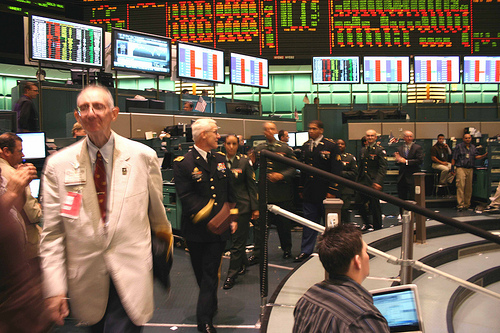
Unless you’ve been living in a cave last week (i hear it’s nice there this time of year), you’ve probably seen/heard/felt the aftereffects of the WSJ article U.S. in Vast Insider Trading Probe.
What’s going on
The short of it is:
- the U.S. suspects the existence of multiple insider trading rings
- the size of the impact of this net would vast eclipse previous insider trading networks
- ensnared are consultants, investment bankers, hedge-fund and mutual-fund traders, and analysts
- holy mackerel, batman
Interesting for readers of Tradestreaming and my book is the focus on expert networks. As per the WSJ
One focus of the criminal investigation is examining whether nonpublic information was passed along by independent analysts and consultants who work for companies that provide “expert network” services to hedge funds and mutual funds. These companies set up meetings and calls with current and former managers from hundreds of companies for traders seeking an investing edge.
These expert networks are de facto for most large investment funds. As I wrote, expert networks like Gerson Lehrman provide unique research experiences, connecting fund analyst with industry experts for one-off interviews.
Not all bad
Unlike traditional sell-side research that is distributed to many investors and loses its value with greater distribution, expert networks provide extremely valuable interactions. My book includes an interview with a senior GLG executive. Much of our time spent together was spent dissecting the compliance engine the leading network had put together and I believe this was as much for PR purposes as much as it was for legal purposes.
It is clear that expert networks have been cited numerous times in the past few years as potentially being involved in facilitating investors’ access to material nonpublic information. However, we are convinced that the financial markets are better off using “best of breed” expert networks than without them — Integrity Research
Other insider trading rings busted recently (like Galleon) were their own creations. I have to agree with Integrity Research‘s opinion — this wasn’t by chance. If Galleon’s vast web of insider information had existed on GLG’s platform, there would have been a clear audit trail of who was involved and to what level. That didn’t occur — instead, by using individual contacts, Galleon was able to obfuscate its activities for years.
That wouldn’t have happened using a professional expert network and markets are better off by having these. That said, it’s clear why GLG isn’t able to go public and we’re probably looking at increased regulation of these platforms (which would push more investors to skirt their use).
Heavier hand add more carrying costs
What might happen, regardless of the outcome of this particular probe, is
- increased scrutiny into the investment research space
- some type of oversight/regulation of expert networks
- more distrust of Wall Street by people on Main Street
- employers continuing to crack down on employee participation in expert networks
- formation of ad hoc expert networks (LinkedIn + phone)
- prices going up on expert networks because of increased oversight


